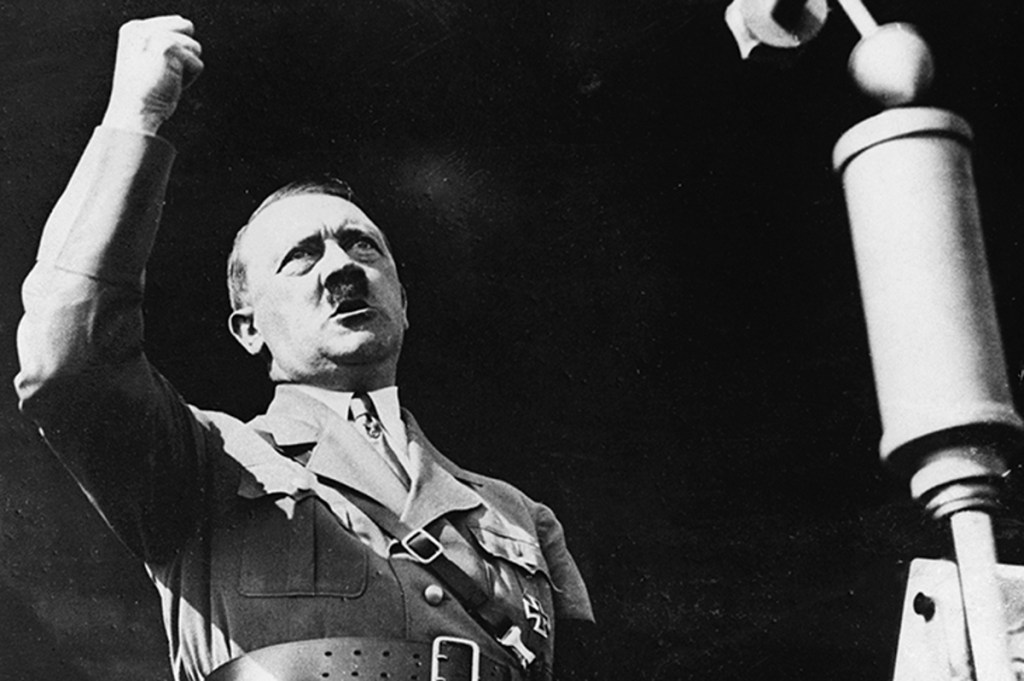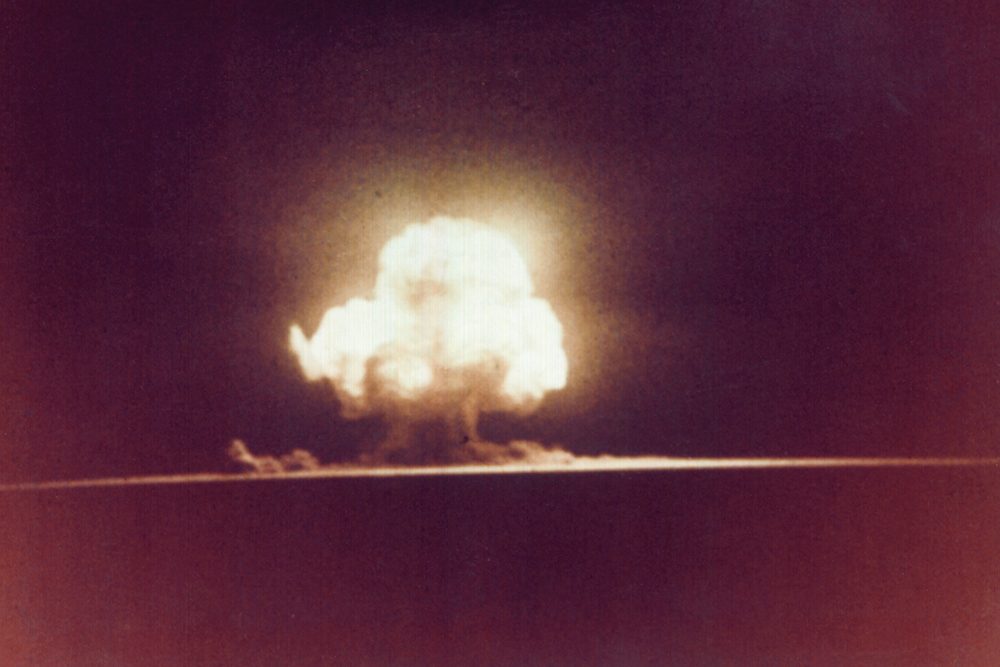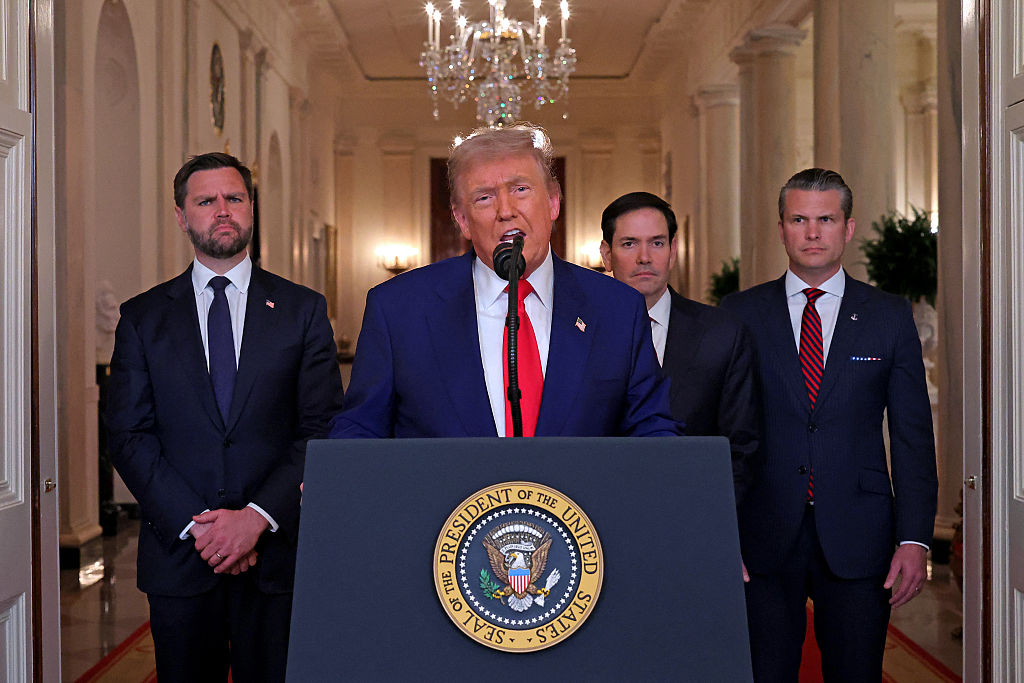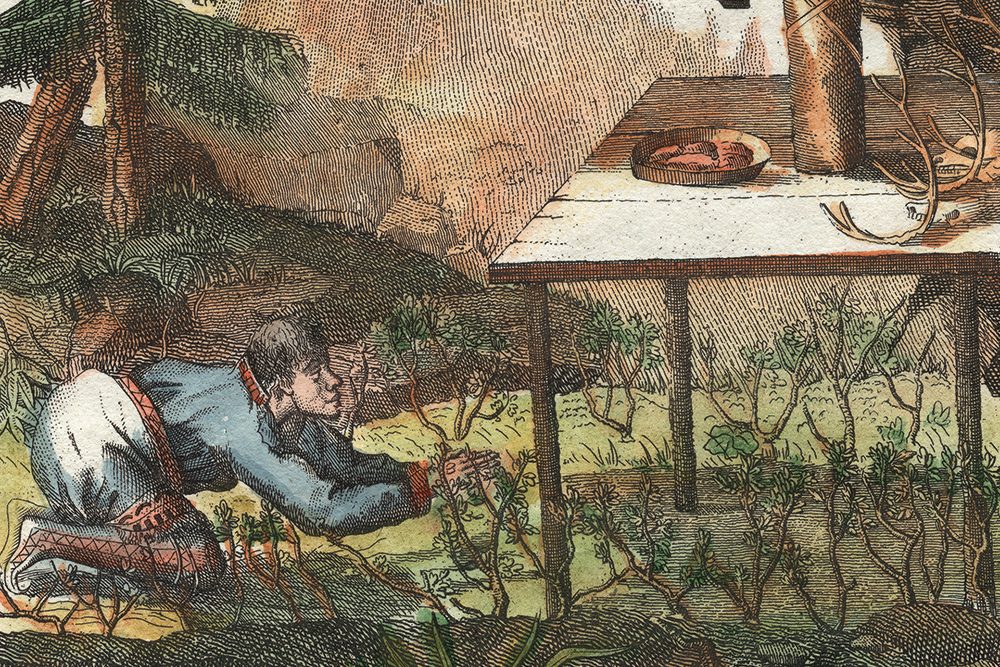Do we need another wrist-breaking book about Adolf Hitler, the Third Reich and World War Two? What is there left to say?
To gain attention, any new study has to have a thesis: some fresh angle that previous writers have overlooked or played down. For Frank McDonough it is the insane impossibility that Germany could ever have won the struggle it launched against the combined powers of the US, USSR and the British Empire that was the Führer’s fatal flaw.
McDonough is an academic specializing in Nazi Germany, and he writes clearly and readably, with just enough detail, on the huge canvas that he covers. This book is the second volume of his history of the Reich, beginning at the acme of its triumph in 1940 and ending with its architect’s suicide in the shrunken, troglodyte world of the Berlin bunker. Although McDonough spreads blame for the downfall and the Holocaust beyond Hitler and the SS to the slavishly subservient Wehrmacht, inevitably it is the demonic figure of the Führer with his racial manias who dominates the story.
Hitler was the epitome of the conspiracy theorist. Firmly believing the US and the USSR were controlled by an international Jewish cabal, and knowing Germany did not have the resources to wage a long war, he gambled on a frenzied rearmament program to fight a short Blitzkrieg before his enemies could bring their superior strength to bear against him. As McDonough writes:
‘Germany never enjoyed a material or economic advantage over Britain and France in 1940, let alone when the massive combined resources of the Soviet Union and the United States were ranged against it.’
At first the gamble paid off. Hitler’s lightning destruction of Poland in 1939 and his conquest of western Europe in 1940 made him master of the Continent. But instead of concentrating on subjugating or starving Britain into submission, he made the fatal mistake of turning east. He had been in a hurry from the moment he took power to put the project he had detailed in Mein Kampf into effect: to break out of Germany’s restricted boundaries and expand into the vast spaces of Ukraine and Russia, there to make the despised Slavs into helots to serve the Herrenvolk and win Lebensraum, and with it the mineral wealth that Germany so sorely lacked.
So it was that Operation Barbarossa, the invasion of the Soviet Union, was launched against Hitler’s ally Stalin in June 1941. Just as recklessly, six months later he declared war on the US in support of Japan and finally sealed his own and his country’s fate. McDonough reminds us that four out of every five German soldiers killed in the war died on the Eastern Front in an unwinnable struggle costing well over 20 million lives. Alongside the military campaign, the Germans, on Hitler’s orders, executed a pitiless war of extermination against the Jews and Soviet civilians and prisoners, marking a new nadir in human bestiality.
Set against the slaughter in the east, the Anglo-American campaigns in North Africa, Italy and even Normandy appear almost as sideshows, although German cities reduced to rubble by the Allied bombing offensive became symbolic of the criminal and nihilistic folly of Nazi rule. McDonough makes plain that Hitler could not have achieved his epic of destruction without the wholehearted support of the great majority of the German people. Their backing endured until the bitter end, and the brave officers and ordinary citizens who resisted Nazism and tried in vain to assassinate Hitler were a tiny group, regarded by most Germans as traitors.
Hitler repaid that loyalty by blaming his defeat on his own Volk. Cornered like a rat in his bunker, he refused to accept any responsibility for the disaster that he had wrought, and denied the horrific reality in a truly Trumpian manner until the moment when he put a bullet through his head.
This article was originally published in The Spectator’s October 2021 World edition.

























